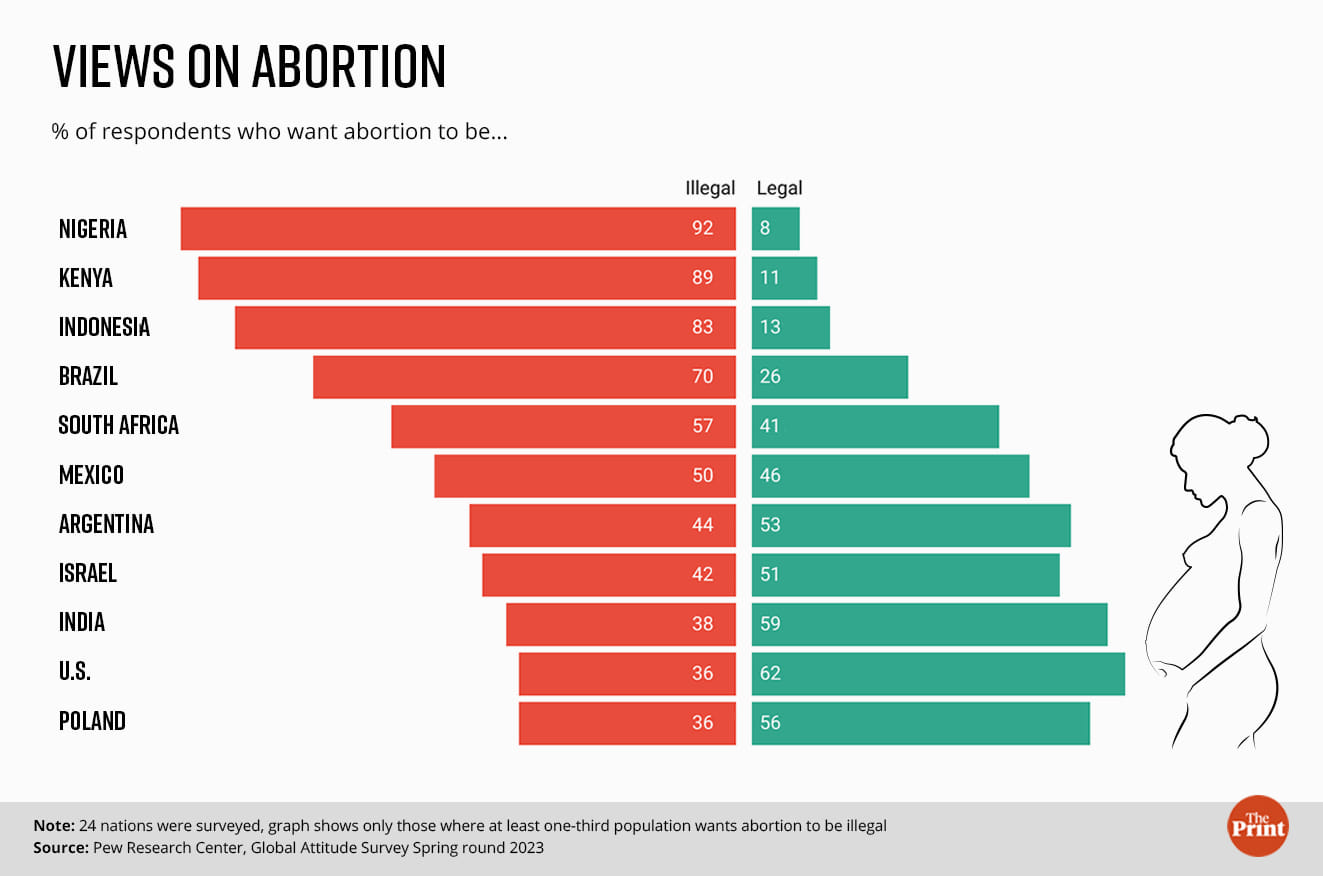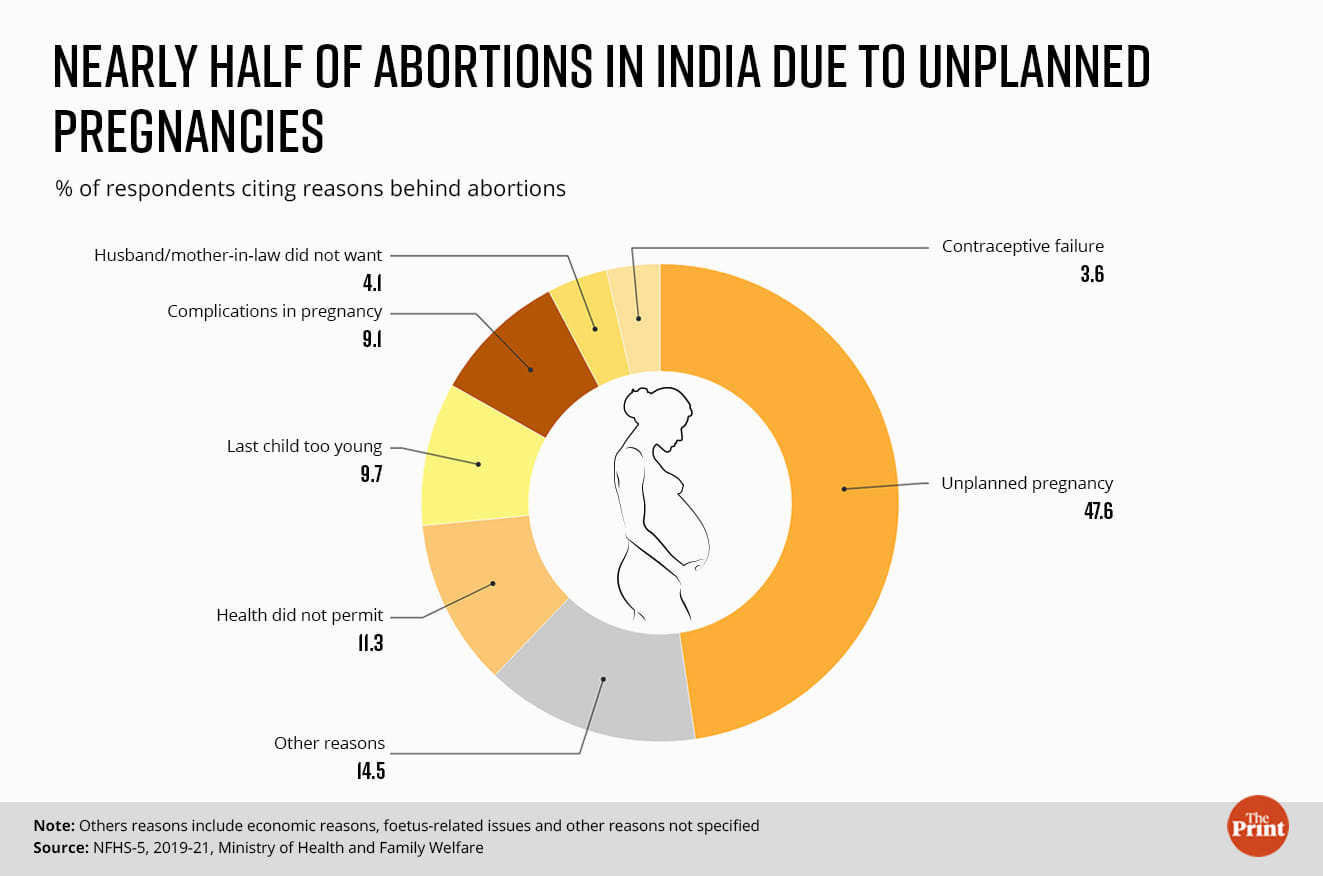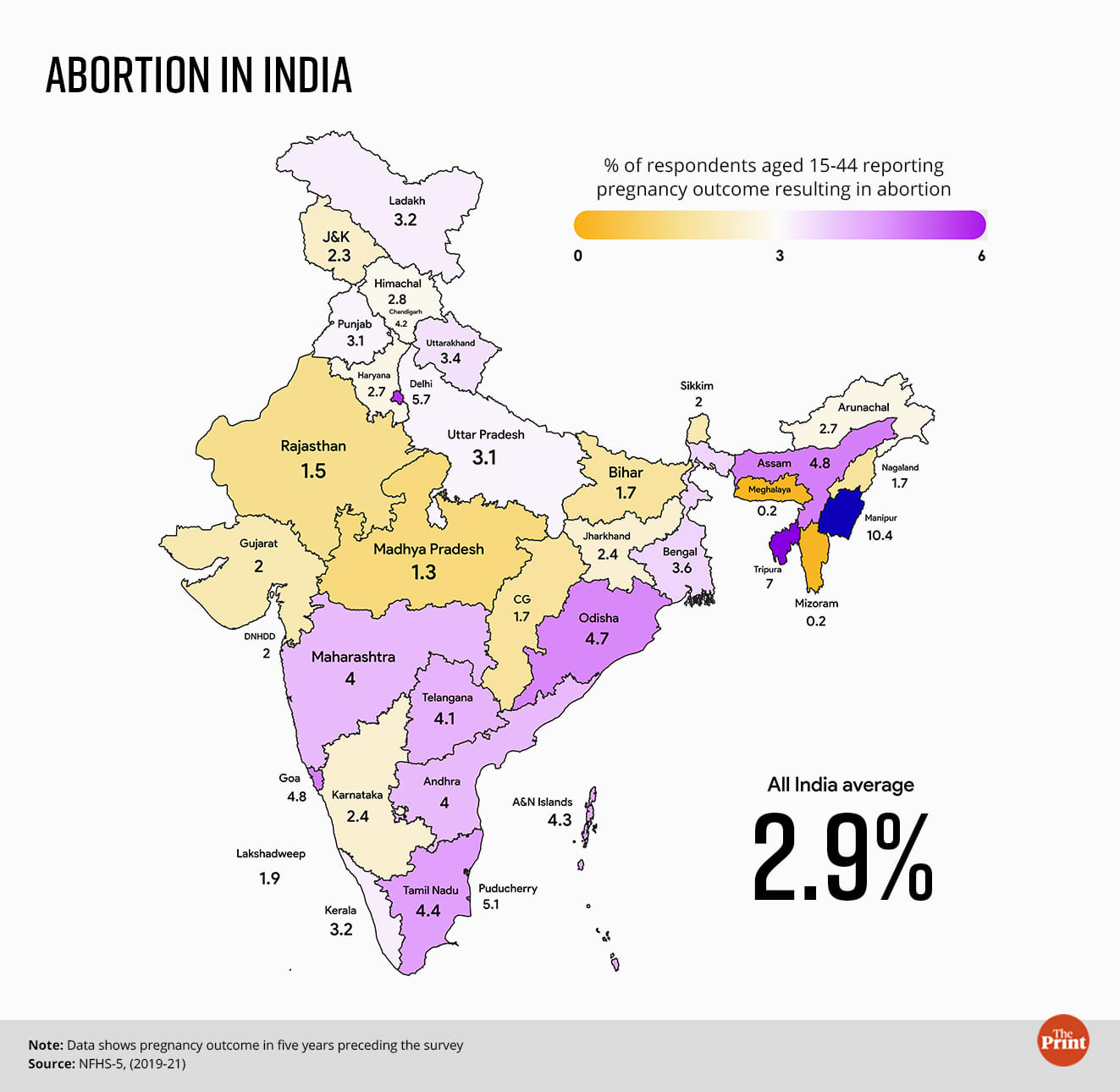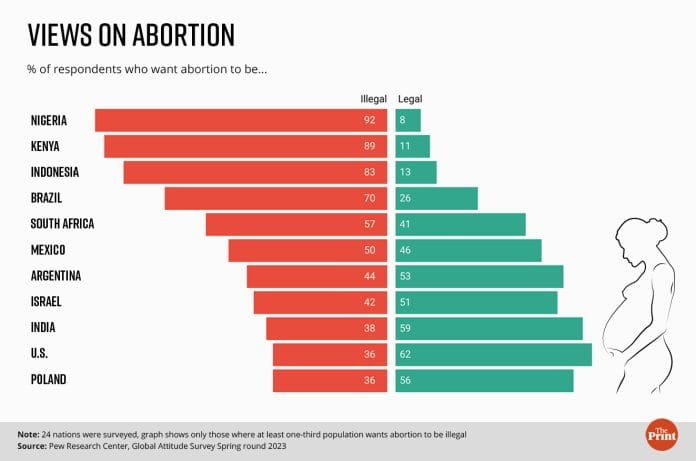New Delhi: Attitudes towards abortion are similar in India and the US, with 59 per cent of Indians and 62 per cent of Americans saying the termination of pregnancy should be legal in all or most cases, data from a survey of 24 countries by the Washington-based think tank Pew Research Center, released on 20 June, has shown.
The results from India and the US come in the wake of the apex courts of both countries issuing landmark judgments on abortion last year.
In India, where abortion was legalised with the Medical Termination of Pregnancy Act in 1971, the Supreme Court last year expanded the scope of the act to cover unmarried women. In the US, in contrast, the top court in June 2022 overturned two of its own landmark judgments that had upheld abortion rights — Roe v. Wade (1973) and Planned Parenthood v. Casey (1992).
A median of 71 per cent of adults across the 24 countries said abortion should be legal in all or most cases, while a median of 27 per cent believed it should be illegal, the think tank reported.
“While support for legal abortion is not as high in India as it is in some other countries we surveyed, we have seen notable growth in support among the general public compared to a survey we conducted in India in 2020 (published 2022). This change also coincides with amendments to abortion regulations in India,” senior researcher Janell Fetterolf and research assistant Laura Clancy of the Pew Research Center told ThePrint.
“However, we have seen a similar pattern of increased support for legal abortion in other regions we have surveyed, including Europe and Latin America,” they added.

Most of the surveyed European countries had high support for legal abortion, with Sweden showing the highest (95 per cent).
As many as 87 per cent respondents in France, 85 per cent in the Netherlands, 84 per cent each in Germany and the UK, 82 per cent in Australia and 81 per cent each in Hungary and Japan said abortion should be legal in all or most cases.
Poland stood out as one country where the same proportion of respondents as India — 36 per cent — said abortion should be illegal in all or most cases.
Also Read: Why India’s law on abortion does not use the word ‘abortion’
More religious, more conservative
The survey found that there tended to be more opposition to legal abortion in more religious countries.
“Attitudes toward abortion are strongly tied to how important people say religion is in their lives. In countries where a greater share of people say religion is at least somewhat important to them, much smaller shares think abortion should be legal,” it said.
“Religiously unaffiliated adults, people on the ideological left and women are more likely to support legal abortion,” it added.
According to the survey, about 92 per cent of Nigerians, 89 per cent of Kenyans and 83 per cent of Indonesians said abortion should be illegal. Brazil (70 per cent), South Africa (57 per cent) and Mexico (50 per cent) were the other countries where at least half the population didn’t want abortion to be legal.
The survey pointed to the fact that that 99 per cent of Nigerians said religion was important in their lives and only 8 per cent believed that abortion should be legal. Similarly, only 20 per cent of Swedes see religion as important and 95 per cent support legal abortion.
The survey report referred to India as an outlier. “People in India are outliers: 94 per cent of Indians view religion as important, but 59 per cent also favour legal abortion,” it said.
Abortion not common in India
The National Family Health Survey (NFHS), which maps out health and various socio-economic characteristics of Indian households, provides details on abortion patterns in India.
According to the latest round of the survey conducted in 2019-21, about 2.9 per cent of pregnancies (self-reported by respondents) across India resulted in abortions. In the previous round of the survey conducted in 2015-16, the figure was about 3.4 per cent.
Going by the findings, around three in 100 pregnancies in India result in an abortion. In comparison, about 20 in 100 pregnancies end in an abortion in the US, according to the Centers for Disease Control and Prevention.
Of the abortions reported in India, nearly half (47.6 per cent) were carried out because of “unplanned pregnancy”, according to NFHS-5. Further, 11.3 per cent of the abortions were done because the health of the mother did not permit the pregnancy.

Up to 9.7 per cent of respondents said an abortion was performed because their previous child was “too young”, and 9.1 per cent of respondents said that pregnancy-related complications drove them to abortion, according to NFHS-5.
A vast majority of abortions happened in private healthcare facilities, the data showed — 52.9 per cent, as opposed to 20.3 per cent in the public sector and 26.2 per cent at home.
Manipur had the highest abortion ratio of all states and Union territories, with 10 in 100 pregnancies being terminated. In Tripura, the figure was 7 per cent (more than double the national average).

Mizoram and Meghalaya had the lowest abortion rate in the country (0.2 per cent), followed by Madhya Pradesh and Rajasthan.
(Edited by Nida Fatima Siddiqui)
Also Read: India and US went pro-choice around the same time. Only one strengthened its abortion laws






